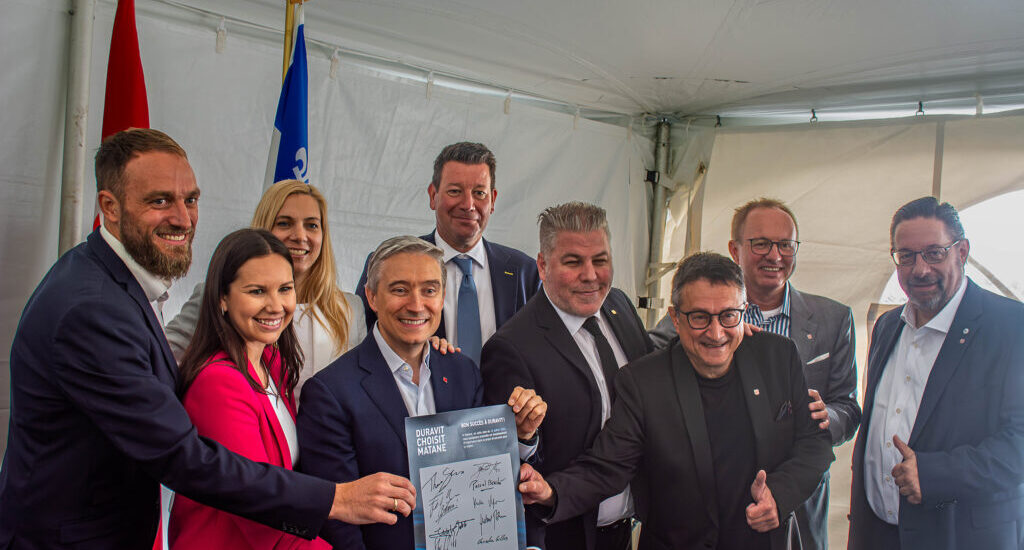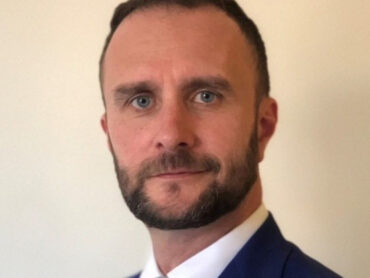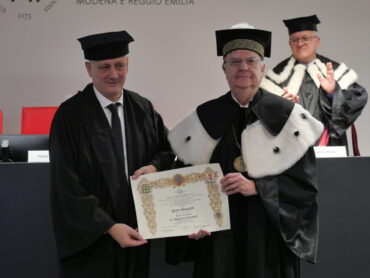SACMI is supplying a complete plant with a fully electric kiln, a world first for the industry. The foundation stone was laid on 13th July at a ceremony attended by Canadian authorities and Duravit management. Expected benefits to include 11,000 tons less CO2 per year than conventional manufacturing. Developed with SACMI, this project paves the way for ‘total climate neutrality’ in the sanitaryware industry
Global high-quality sanitaryware manufacturer Duravit is targeting a 100% sustainable future. How? By designing the world’s first ‘zero impact’ ceramic sanitaryware production plant, to be built in Canada.
All the energy needed to run the plant, in fact, will come from renewable sources (hydroelectric). Hence Duravit’s decision to install an all-electric roller kiln designed by SACMI, a world first for this type of application.
The foundation stone was laid on 13th July at a ceremony attended by Canadian authorities and Duravit management. The plant is expected to be fully operational by 2026. “We’re extremely proud to be pioneering the design of sustainable sanitaryware manufacturing solutions that respond to the challenges of climate change,” explains Stephan Tahy, CEO of Duravit.
With the new factory in Canada, Duravit will be the first ceramic manufacturer to rely on an electric firing process, paving the way – together with SACMI – for fully climate-neutral sanitaryware manufacturing. “Thanks to close collaboration with long-standing partner SACMI and our own research and development, we’ve successfully developed a new type of kiln”, observes CEO Stephan Tahy. This, states Duravit, will prevent the emission of as much as 11,000 tons of CO2 per year compared to conventional ceramic-making techniques.
The new Canadian project will see SACMI supply Duravit with solutions for the complete production process, from raw material preparation to fired piece handling, all thanks to the unmatched expertise of the SACMI network of sanitaryware companies. Alongside the new-concept kiln and the driers, SACMI will provide all the key technologies: body and glaze preparation, SACMI RobotCasting high-pressure casting, automation with LaserMove vehicles and SACMI RobotGlaze robotic glazing.
“We’re extremely pleased with the launch of this strategically important operation”, observes the President of SACMI, Paolo Mongardi, “which strengthens SACMI’s role as a global sustainable manufacturing partner. For years now, the entire SACMI network of companies has been committed to combining their traditional technological/plant engineering vocation with solutions that respond to environmental challenges, from clean fuels to the recovery of heat, water and raw materials. These are ambitious goals: that’s why we build everything around our customers, working alongside them to ensure their needs are met in full”.
“In designing the new plant – says Daniele Coralli, General Manager Whiteware at SACMI – Duravit worked side by side with SACMI, already a strategic partner on various Group projects – some completed, some in progress – at key facilities worldwide (e.g. Germany, France, Egypt, India, China, Tunisia). As with every new enterprise, there was, alongside sustainability, a sharp focus on plant automation, the aim being to create ultra-high-quality products by reducing the need for manual processing.
The success of projects worldwide, together with proven complementary technological skills, has made both parties confident they can face this latest crucial challenge just as successfully. From this perspective, the project includes machines used successfully on previous projects and specially-made solutions, co-developed by the two companies using their tried and tested teamwork”.
At the new Canadian site, Duravit has even designed the logistics to be sustainable by purchasing mainly locally-sourced raw materials. Last but not least, the project received extensive support from the local Canadian authorities (a continuation of their solid partnership with the company, founded in Hornberg in 1817) as part of a truly global approach to sustainable development.


